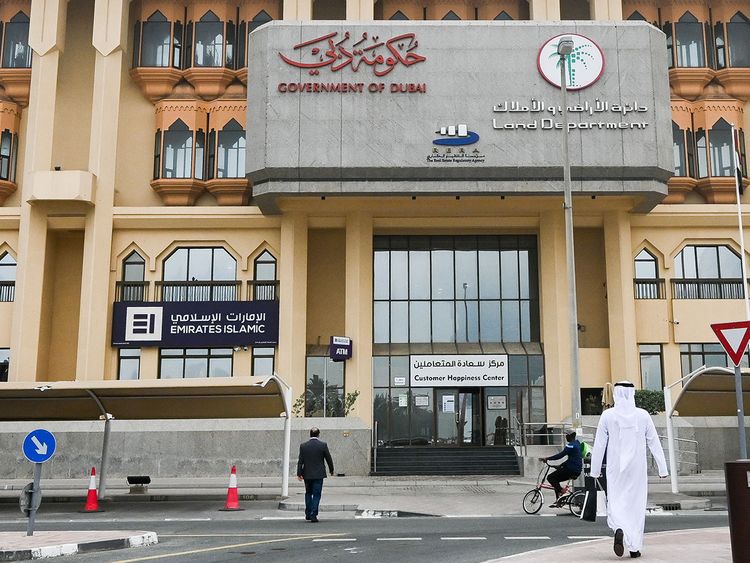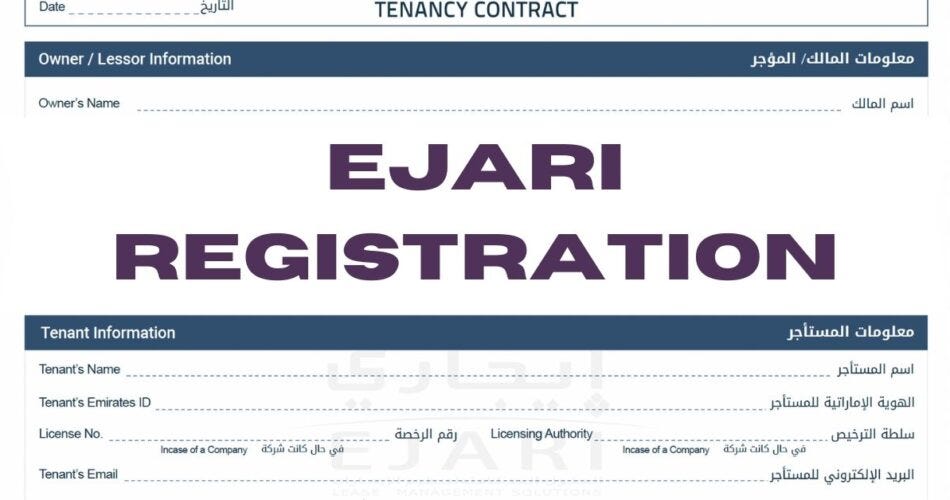Dubai’s real estate landscape offers immense opportunities for landlords and investors, but navigating the legal framework is crucial for success. In this extensive guide, we’ll cover all the laws and regulations that Dubai landlords and real estate investors need to know when buying, selling, or renting properties in the city. From property ownership and leasing to transaction procedures and landlord-tenant relationships, we’ve got you covered.
Table of Contents
- Introduction: Dubai’s Thriving Real Estate Market
- Property Ownership Laws
- Understanding Freehold and Leasehold
- Property Registration and Title Deeds
- Property Transactions: Buying and Selling
- Legal Procedures for Property Transactions
- Transaction Costs and Fees
- Rental Laws and Regulations
- Tenancy Contracts and Ejari
- Rent Increases and Disputes
- Property Management Regulations
- Responsibilities of Landlords
- Tenant Rights and Obligations
- Real Estate Regulatory Agency (RERA) Guidelines
- RERA Registration and Compliance
- RERA’s Role in Dispute Resolution
- Mortgage Laws in Dubai
- Obtaining a Mortgage in Dubai
- Mortgage Registration and Repayment
- Inheritance and Real Estate
- Transferring Property Through Inheritance
- Taxation and Legal Procedures
- Commercial Real Estate Laws
- Regulations for Commercial Properties
- Commercial Lease Agreements
- Foreign Ownership and Investment
- Legal Framework for Foreign Investors
- Benefits of Dubai Investment
- Real Estate Legal Experts: When to Seek Professional Advice
- FAQs: Your Dubai Real Estate Questions Answered
- What is the difference between freehold and leasehold property in Dubai?
- How are tenancy contracts and Ejari related?
- What are the responsibilities of a landlord in Dubai?
- Can foreigners invest in Dubai real estate?
- When should I consult a real estate legal expert in Dubai?
Introduction: Dubai’s Thriving Real Estate Market
Dubai’s real estate market is a dynamic and ever-evolving sector that attracts investors and landlords from around the world. The city’s strategic location, economic stability, and world-class infrastructure make it an ideal destination for real estate investment. However, to ensure a smooth and profitable real estate journey in Dubai, understanding the laws and regulations governing the industry is essential.

Property Ownership Laws
Understanding Freehold and Leasehold
Dubai offers two primary forms of property ownership: freehold and leasehold. Freehold properties grant the owner full rights and ownership of the property and the land it’s built on. On the other hand, leasehold properties provide ownership for a predetermined lease period, after which the property reverts to the landowner. Understanding these distinctions is vital when investing in Dubai real estate.
Property Registration and Title Deeds
Property ownership is documented through title deeds in Dubai. These legal documents establish your ownership rights and responsibilities. To buy or sell a property, the transaction must be recorded with the Dubai Land Department, and the title deed must be transferred to the new owner. This process ensures the legality and transparency of property ownership.
Property Transactions: Buying and Selling
Legal Procedures for Property Transactions
The legal procedures for buying and selling property in Dubai involve several steps. These include verifying property records, obtaining no-objection certificates, and executing a sales agreement. Additionally, property transactions incur various fees and costs, such as transfer fees, agent commissions, and registration fees. It’s crucial to be aware of these expenses to make informed financial decisions.
Transaction Costs and Fees
Dubai’s real estate market has its share of transaction costs, including property transfer fees, agent commissions, and mortgage-related expenses. Understanding these costs helps investors and sellers calculate their budgets and potential returns accurately.

Rental Laws and Regulations
Tenancy Contracts and Ejari
Renting property in Dubai requires a tenancy contract, which should be registered with the Ejari system, a government initiative that aims to regulate and standardise rental contracts. The Ejari system helps prevent disputes between landlords and tenants and ensures that both parties adhere to their contractual obligations.
Rent Increases and Disputes
Dubai’s rental laws limit the frequency and amount of rent increases. Disputes related to rent, maintenance, and other rental matters can be resolved through the Dubai Rent Disputes Settlement Centre (RDSC). It’s essential for landlords and tenants to understand their rights and responsibilities under these regulations.

Property Management Regulations
Responsibilities of Landlords
Landlords in Dubai are subject to various responsibilities, including property maintenance, tenant communication, and adhering to lease agreements. Complying with these obligations fosters a positive landlord-tenant relationship and ensures the property’s integrity.
Tenant Rights and Obligations
Tenants also have rights and obligations outlined in Dubai’s real estate regulations. These include the right to a well-maintained property, privacy, and timely repairs. Understanding these rights empowers tenants to protect their interests.
Real Estate Regulatory Agency (RERA) Guidelines
RERA Registration and Compliance
The Real Estate Regulatory Agency (RERA) plays a significant role in regulating and overseeing Dubai’s real estate sector. Real estate agents, developers, and property management companies must be registered with RERA. Complying with RERA guidelines is crucial for ensuring transparency and legal compliance in the industry.
RERA’s Role in Dispute Resolution
RERA also serves as a dispute resolution platform for real estate-related conflicts. If disputes arise between landlords and tenants, RERA can facilitate negotiations and mediate to find a fair and amicable solution.

Mortgage Laws in Dubai
Obtaining a Mortgage in Dubai
Obtaining a mortgage for a property in Dubai is a common practice for investors. Dubai’s mortgage laws are investor-friendly, allowing individuals and companies to secure loans for property purchases. Understanding the mortgage process and requirements is essential for those looking to finance their real estate investments.
Mortgage Registration and Repayment
Once a mortgage is obtained, it must be registered with the Dubai Land Department. Repayment terms and interest rates vary, and investors should carefully review mortgage agreements to make informed decisions.
Inheritance and Real Estate
Transferring Property Through Inheritance
In Dubai, property inheritance is governed by specific laws and regulations. Understanding the process of transferring property to heirs and the associated taxes is crucial for those with property assets in the city.
Taxation and Legal Procedures
Dubai imposes various taxes related to real estate transactions. Buyers and sellers should be aware of these taxes to ensure they meet their financial obligations and avoid legal issues.
Commercial Real Estate Laws
Regulations for Commercial Properties
Dubai’s commercial real estate sector follows specific regulations and guidelines. Business owners looking to lease or purchase commercial properties must understand these rules to establish a successful presence in the city.
Commercial Lease Agreements
In Dubai, commercial leases differ from residential leases. Commercial tenants and landlords should be familiar with the terms and conditions that apply to their specific situation.

Foreign Ownership and Investment
Legal Framework for Foreign Investors
Dubai welcomes foreign investors and offers various incentives and opportunities for property investment. Understanding the legal framework for foreign ownership and the benefits it entails is essential for international investors.
Benefits of Dubai Investment
Investing in Dubai’s real estate market offers numerous advantages, including high rental yields, strong capital appreciation, and a robust economy. Exploring the benefits can help investors make informed decisions.
Real Estate Legal Experts: When to Seek Professional Advice
While this guide provides an overview of Dubai’s real estate laws and regulations, seeking legal advice from experts is advisable, especially for complex transactions or disputes. Legal professionals with expertise in Dubai’s real estate sector can provide invaluable guidance.
FAQs: Your Dubai Real Estate Questions Answered
What is the difference between freehold and leasehold property in Dubai?
In Dubai, freehold properties grant the owner complete ownership rights, while leasehold properties provide ownership for a specific lease period, after which the property reverts to the landowner.
How are tenancy contracts and Ejari related?
Tenancy contracts in Dubai must be registered with the Ejari system, a government initiative that standardises rental agreements and helps prevent disputes.
What are the responsibilities of a landlord in Dubai?
Landlords in Dubai are responsible for property maintenance, lease agreement compliance, and effective communication with tenants.
Can foreigners invest in Dubai real estate?
Yes, Dubai welcomes foreign investors and offers various incentives for property investment.
When should I consult a real estate legal expert in Dubai?
It’s advisable to consult a real estate legal expert for complex transactions, disputes, or when you need specialised guidance related to Dubai real estate laws and regulations.
Conclusion
Dubai real estate laws and regulations play a pivotal role in maintaining a fair and transparent property market. Whether you’re a landlord, investor, or tenant, understanding these regulations is vital for a successful and profitable real estate journey in the city. By following the guidelines and seeking legal advice when necessary, you can navigate Dubai’s real estate landscape with confidence and security.
Read more about RERA Guidelines For Selling Your Property In Dubai
Book a free consultation with me, and let’s talk if you need any clarification in the Dubai Real Estate Market.




